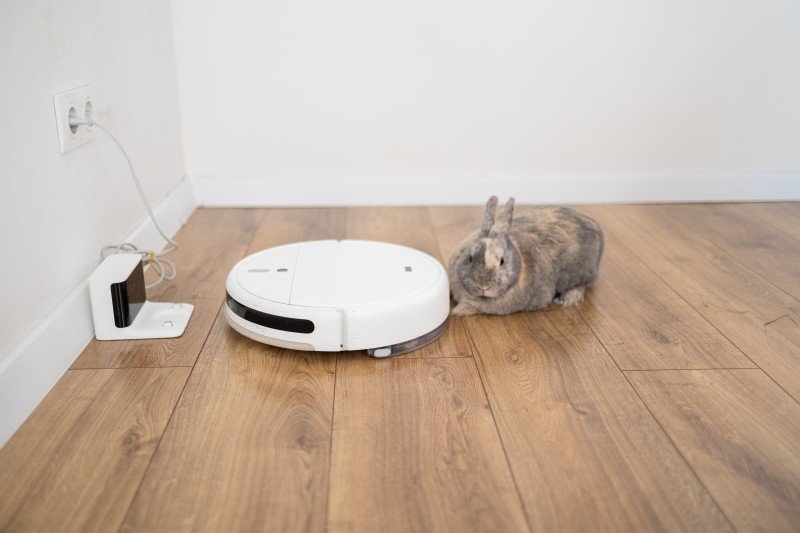This Is The Robot Vacuum Cleaner Case Study You'll Never Forget

The Rise of Robot Vacuum Cleaners: A Comprehensive Guide
In the last few years, robotic innovation has permeated various elements of day-to-day life, substantially modifying how tasks are achieved. One of the most cutting-edge advancements in this location is the development of robot vacuum. These devices have shifted from a luxury item to an important family tool, providing benefit and effectiveness to countless users around the world. This article will explore the mechanics, advantages, constraints, and popular models of robot vacuum, in addition to address some regularly asked questions.
What is a Robot Vacuum Cleaner?
A robot vacuum is an autonomous device designed to tidy floors without human intervention. Equipped with sensing units, brushes, and vacuum technology, these little machines can browse a home, efficiently choosing up dirt, dust, and particles. vashtischkade.top come with various features, consisting of Wi-Fi ability, smart device applications, and home mapping innovation, which allow users to keep an eye on cleaning progress from another location.
How Robot Vacuum Cleaners Operate
Robot vacuums utilize several innovations to guarantee reliable cleaning. Below are the primary elements that contribute to their performance:
- Navigation Sensors: Most robot vacuums come with various sensors (infrared, ultrasonic, and so on) that assist detect barriers, stairs, and walls, permitting the gadget to navigate a room effectively.
- Suction Mechanism: The vacuum employs a suction system to gather dirt and dust from surfaces. Lots of designs use advanced cyclonic innovation to enhance suction power.
- Cleaning Brushes: Different kinds of brushes (side brushes, rolling brushes) assist in loosening up dirt and assisting debris into the vacuum's suction location.
- Battery System: Operating on rechargeable batteries, robot vacuums can clean autonomously for an established period before returning to their docking station to recharge.
- Smart Features: Many models are equipped with Wi-Fi connectivity, enabling users to manage cleaning schedules, suction power, and zoning by means of smart device apps. Some even support voice control through clever home gadgets like Amazon Alexa and Google Assistant.
Benefits of Robot Vacuum Cleaners
The combination of robot vacuum into everyday cleaning jobs uses several substantial benefits:
- Time-Saving: They perform cleaning autonomously, allowing users to concentrate on other essential activities.
- Consistent Cleaning: Robot vacuums can clean on a regular schedule, making sure that dirt and dust do not collect.
- Benefit: Most models can be operated while users run out your home, or perhaps from remote locations through smart device apps.
- Space Efficient: With their compact design, they can access locations that conventional vacuums can not, such as under furniture and in tight spaces.
- Smart Technology: The included functions, such as mapping and scheduling, provide users with boosted control over their cleaning regimens.
Limitations of Robot Vacuum Cleaners
Despite their various benefits, robot vacuums do feature some restrictions:
- Initial Cost: High-quality robot vacuums can be more pricey than traditional vacuums, which might hinder some consumers.
- Handbook Assistance Needed: Robot vacuums might have problem with big debris or thick carpets, requiring occasional manual vacuuming.
- Battery Life: Depending on the model and the size of the home, the battery life may restrict just how much area can be cleaned up in one session.
- Maintenance: Regular maintenance, such as clearing the dustbin and cleaning brushes, is vital to keep the vacuum operating successfully.
Popular Robot Vacuum Models
Here's a table comparing a few of the top-rated robot vacuum cleaners on the marketplace:
| Model | Suction Power | Battery Life | Smart Features | Rate Range |
|---|---|---|---|---|
| iRobot Roomba 980 | High | As much as 120 min | Wi-Fi, App Control, Alexa | ₤ 600 - ₤ 800 |
| Roborock S7 | Really High | As much as 180 minutes | Mapping, Virtual Barriers, App | ₤ 400 - ₤ 600 |
| Ecovacs Deebot OZMO T8 | High | Approximately 240 min | AI Smart Navigation, App Control | ₤ 600 - ₤ 700 |
| Neato Botvac D7 | High | Up to 120 min | Mapping, Zone Cleaning | ₤ 600 - ₤ 700 |
| Shark IQ Robot | Moderate | Approximately 90 min | Self-Cleaning, App Control | ₤ 400 - ₤ 500 |
FAQs About Robot Vacuum Cleaners
Q1: Can robot vacuum cleaners replace traditional vacuums?
While robot vacuums can significantly lower the need for conventional vacuuming, they are best utilized as a complementary tool rather of a complete replacement. For deep cleaning or bigger particles, standard models may still be needed.
Q2: Are robot vacuums effective on all types of flooring?
A lot of robot vacuums perform well on difficult surfaces like tile and hardwood, along with low-pile carpets. However, users with high-pile carpets might discover minimal efficiency and must consider particular designs designed for those surfaces.
Q3: How do robot vacuums handle pet hair?
Many designs are specifically created with effective suction and rubber brushes that effectively gather pet hair from carpets and furniture. It's suggested to examine evaluations focusing on animal owners' experiences for much better insights.
Q4: Do robot vacuums require much upkeep?
Robot vacuums do require some maintenance. Users should frequently clear the dustbin, clean the brushes and sensing units, and look for any blockages to maintain ideal performance.
Robot vacuum have changed the cleaning landscape, using users time-saving, effective, and practical services to floor upkeep. While they might not fully replace standard vacuums, their integration into households signifies an action forward in how we approach home cleanliness. As innovation continually evolves, we can anticipate much more innovations in this area-- making robot vacuums an ever-relevant home tool.

